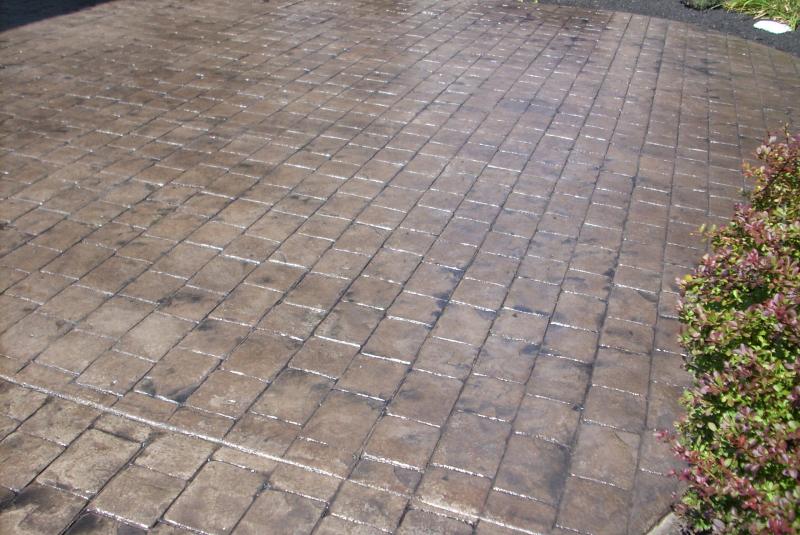How Cold Weather Affects Concrete
Concrete is an extremely durable surface, however the cold weather can do a number on it. The American Concrete Institute (ACI) definition of cold-weather in terms of concreting is “a period when for more than three successive days the average daily air temperature drops below 40 degrees Fahrenheit and stays below 50 degrees Fahrenheit for more than one-half of any 24 hour period.” The drop in temperatures is the reason why concrete is more likely to be damaged in the winter months than in warmer weather.
The science behind how concrete sets is this. When water is mixed with cement powder, the resulting matter is in a semiliquid state. The mixture of the two substances also causes the crystallization process to begin, turning the semiliquid into a solid. However, the speed of this reaction depends on the temperature of the concrete, which is related to the temperature outside. Warm weather will make the process faster while cold weather slows it down. The process typically continues for months after being freshly poured and the more crystals that grow, the stronger the concrete. Cold weather not only slows down the reaction, but it could also make the crystals stop growing is the temperature drops below 14 degrees, resulting in weak concrete.
There are certain things that can extend the life of your concrete. For the most part, any damage that occurs to concrete is going to happen during the harsh winter months. Your outdoor concrete needs a quality sealer before winter sets in. The frequency at which you seal your concrete depends on how much you want to protect your investment. The function of a sealer is to minimize the amount of moisture that gets into the concrete’s pores. This layer of protection effectively prevents damage from freeze-thaw cycles.
Stamped concrete can fail after a hard winter. When water freezes on and around the concrete, the resulting expansion puts pressure on the concrete and repeated conditions can change the original finish. You should apply a high-quality sealer to all exterior concrete slabs exposed to freeze-thaw conditions whether plain or decorative. The sealer helps protect the concrete from moisture absorption, mold and mildew, exposure to chemicals, and grease and oil stains.
When it comes to maintaining and cleaning your concrete investment, contact the trustworthy experts at Bravo Buffalo.

